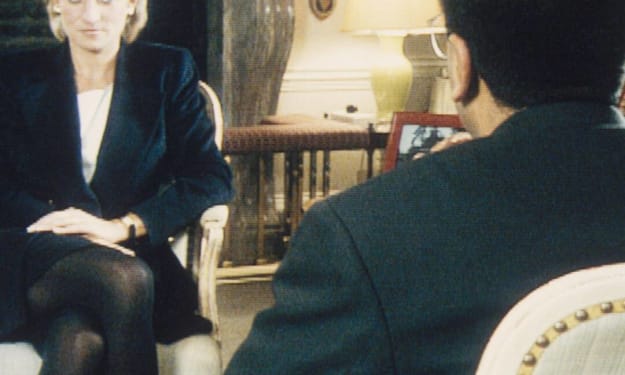
It doesn't make any difference in case you're an extraordinary author, great essayist, or self-hatred author.
You can improve as an author.
What I've discovered from these fluctuated composing encounters is that our composing regularly improves when we separate the creative cycle into a few unmistakable advances.
Each progression requires its own range of abilities and isolating them permits me to zero in on what's required for each around there and has made my composing more straightforward, agreeable, and viable.
Here's an outline of the six stages I follow and how they can help you.
1: Pay attention.Writing begins way before you write.
The first step to better writing is to develop a habit of noticing things and to pay attention to the world around us on a daily basis.
We must learn to observe our surroundings, contemplate our interactions with people, and actively incorporate a wide array of influences into our lives.
The places we go, people we meet, things we do, media we consume, and experiences we have are all assets in our writing arsenal. Make an effort to explore and contemplate as many things as possible.
Experience is the foundation of great writing and the more we acquire, the more we have to draw on.
“The moment one gives close attention to any thing, even a blade of grass, it becomes a mysterious, awesome, indescribably magnificent world in itself.” — Henry Miller
2: Generate ideas.
Idea generation and writing are not the same things. Idea generation is the process of coming up with concepts while writing is the process of communicating those concepts. They’re related, but different. That’s why it’s helpful to set aside some time specifically to generate ideas. There are countless ways to do so — brainstorm, challenge ourselves to come up with 50 ideas, bounce ideas off other people, or whatever works for you to juice your creativity. But the communication of these ideas (the writing) should be separated from the origination of them. Doing so frees us up to discover more and better ideas than we otherwise might. And once we decide which ideas to pursue, we’re ready to move on to the next step.
“Thinking is the hardest work there is, which is probably the reason why so few engage in it.” — Henry Ford
3: Flesh out an idea.
Whenever we've picked a thought or two we need to investigate in our composition, the following stage is to tissue out those thoughts. This resembles a twist on the thought age stage, however this time customized to investigate further the thoughts we've decided to zero in on. We can delve profound into them, thoroughly consider what we need to say about them, and how we need to say it. This can likewise be viewed as our diagram stage — it's the progression where we spread out the thing we're at last going to compose and how we will compose it.
“If you do enough planning before you start to work, there’s no way you can have writer’s block.” — R. L. Stine
4: Write.
Here we go — the second we've been hanging tight for. Composing — particularly a first draft of something — is a totally unique ability and outlook than thought age and altering (more on that in a moment). Regardless of how skilled we are as an essayist, our first draft of anything will be imperfect. It will not be our best and there's a decent possibility we will loathe those first words we let out on the page. That is alright. It's justifiable. Since regardless of the amount we love to compose, our underlying demonstration of composing is stacked with negative support. We battle to think of the specific right words to communicate our thoughts and unavoidably get disappointed and debilitate when we find our creation misses the mark concerning our aim. While following the initial three stages I illustrated above preceding composing will make our first draft limitlessly better, it will not make it great and will not shield us from negative sentiments about our work. Yet, here's the uplifting news — this is the solitary advance in the creative cycle that will feel this awful. Since once we move beyond the primary draft, the remainder of our work will improve what we've composed. It will convey uplifting feedback. Remembering that can help inspire us to push through this progression, get something down on paper, and do whatever it takes not to pass judgment on our work too brutally.
“Writing the last page of the first draft is the most enjoyable moment in writing. It’s one of the most enjoyable moments in life, period.” — Nicholas Sparks
5: Edit.
While the writing phase is often rooted in negative reinforcement, editing is the opposite — it’s filled with positive momentum. Because every edit we make improves our work and gets us closer to the vision we have for our creation. Editing is also a completely different skill than writing so it’s important to treat it as such. If we edit as we write, we’ll just slow ourselves down, confuse ourselves, and decrease the likelihood we’ll ever finish the draft. Editing is its own separate step for a reason. And arguably, it’s the most crucial one to the ultimate success of our writing.
“When you write a book, you spend day after day scanning and identifying the trees. When you’re done, you have to step back and look at the forest.” — Stephen King
6: Publish.
The composition and altering might be done, however there's as yet one more obstacle to win. It's an ideal opportunity to distribute. To impart our composition to other people. It's imperative to perceive this is a stage all to its own and for large numbers of us, it very well may be a troublesome one — that is the reason there are such countless ventures we're everlastingly "stating" and never distributing. Distributing compels us to gaze intently at our weaknesses and gather the fortitude to put our creation out into the world. We need to do this regardless of realizing it very well might be judged, disregarded, or celebrated. It's hard, however we need to remind ourselves why we composed this thing in any case and promise ourselves that regardless of what happens to it, we'll be fine. Distributing is serious and takes fortitude. By remembering it accordingly, we give ourselves kudos for the achievement that it is — and offer others the chance to profit by that which we've made.
“Once you publish a book, it is out of your control. You cannot dictate how people read it.” — Margaret Atwood
About the Creator
Eveline
Writer living my dreams by day and dreaming up new ones by night. Writing is my passion :)






Comments
There are no comments for this story
Be the first to respond and start the conversation.